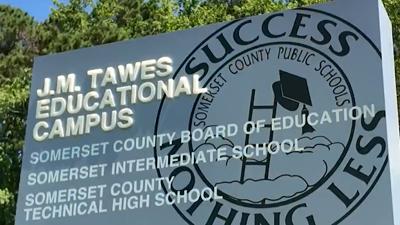PRINCESS ANNE, Md. - The Somerset County Board of Education is sharply disputing a state watchdog’s accusation that it broke the law and its own rules when it hired its current legal team, calling the Office of the Inspector General for Education’s analysis “extremely troublesome,” legally flawed, and biased.
In a Nov. 13 report, the Maryland Inspector General for Education concluded the Somerset BOE improperly voted in closed session earlier this year to fire its previous law firm and hire Schifanelli Law, LLP. Those decisions, according to the Inspector General, should have been made in public under Maryland law. The report also says the board violated Somerset County Public Schools policies governing how attorneys are selected and how contracts are procured, and faulted board members for refusing to sit for interviews.
In a letter sent on Nov. 18 to State Board of Education President Dr. Joshua Michael, attorneys Marc and Gordana Schifanelli, writing on behalf of the Somerset board, argue the Inspector General is misreading both state law and local policy. They say Somerset, like other local school systems, is exempt from Maryland’s State Finance and Procurement Article and related regulations and that OIGE wrongly treated nonbinding “State Procurement Guidelines” as legally binding on the board.
Clash over procurement rules
The Inspector General’s report hinges in part on Somerset Board Policy 200-14, “Bidding and Purchasing,” which references a section of the Maryland Education Article and outlines procedures for competitive bidding, bid advertisements, and contract awards for school facility improvements, equipment, supplies and services purchased with federal funds.
The Inspector General concluded the board violated that policy and state “procurement guidelines” by entering into an open-ended, six-figure legal services contract without going through a formal competitive process, and by failing to retain a copy of the fully executed agreement in its files. It classified legal services as a higher-level “Category III” procurement that should have triggered more stringent procedures.
The board’s response on Tuesday rejects that premise. Citing a prior Maryland Supreme Court decision, the attorneys argue local school boards are governed by the Education Article, not the State Finance and Procurement Article, and that nothing in the board’s policies waives Somerset’s status as a body exempt from state procurement law.
“Consequently,” the memo states, OIGE’s discussion of contracts, open-ended agreements, and termination clauses under state procurement law is “entirely irrelevant and inapplicable” to the question of whether the board violated any law by hiring its current counsel.
Alleged lack of cooperation
The Inspector General’s Office also claimed its work was hampered because board members declined to participate in interviews throughout their investigation. According to state investigators, Somerset’s attorneys refused OIGE’s conditions for the interviews, which reportedly included no use of a court reporter as well as plans to question each board member separately behind closed doors.
The BOE’s memo pushed back on this as well and cited a lack of trust created by the Inspector General for Education’s own actions. Somerset’s attorneys say the Inspector General publicly discussed the Somerset board and referenced curriculum disputes, book removals, and alleged “unprofessional” conduct on a WBAL radio show in August, which the board’s counsel says eroded trust and suggested bias.
Correspondence attached to the response shows Schifanelli Law initially signaled board members were “amenable” to being interviewed, but objected to being questioned individually behind closed doors without a court reporter and raised questions about potential conflicts if OIGE’s probe extended to the law firm itself. OIGE declined the request for a court reporter, citing its standard practice of being the sole recorder of interviews.
The memo argues the board nonetheless turned over all requested documents and notes that the Inspector General had the power to subpoena members if he believed their testimony was essential, a step he ultimately did not take.
What happens next
In his Nov. 13 letter included with his report, Inspector General Richard Henry asked the State Board of Education to weigh in on the findings by Dec. 19, 2025, recommending statewide procurement standards and mandatory training for school board members.
Somerset’s response urges the State Board to reject those recommendations, arguing they would effectively recreate a statewide procurement regime the courts and legislature have already said does not apply to local school boards. The memo concludes that the board “engaged in no unlawful or unethical behavior” in hiring its current legal counsel.
The State Board has not yet announced what, if any, action it will take in light of the watchdog’s findings and the Somerset board’s rebuttal.


